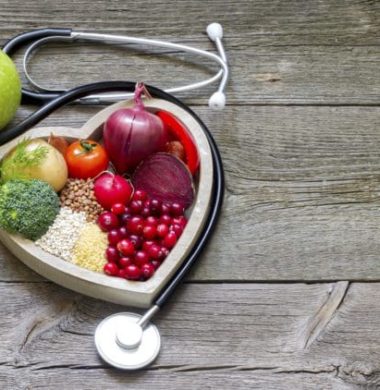Natural Ways to Lower Blood Pressure

A lot is happening right now, and sometimes taking it all in can be overwhelming. Add that to the daily pressures of life, the lessened state of physical activity, and the fact that a typical American diet doesn’t do much to help our health, and you have a recipe for higher blood pressure. If you have dealt with or are dealing with high blood pressure but are looking for ways to lower it naturally (while in conversation with your primary care provider), we’ve compiled a few scientifically-backed ideas for you to try.
Go for a Walk
Cardio helps lower your blood pressure by increasing your heart health. Especially as the days get longer, soaking up that Vitamin D and enjoying the great outdoors is scientifically proven to lower stress levels. If you are out for a walk, please remember to wear your mask, but getting some fresh air and getting your heart pumping a little is a great way to focus on your physical fitness and lower your blood pressure naturally. Just make sure you hydrate and wear sunscreen, especially as we move into June and summer.
Meditate
Mental health and stress levels can have a tremendous impact on your blood pressure. If you’ve been stressed out or experiencing more stress than usual these days (who hasn’t?), try creating a meditation practice. If apps are your thing, Headspace is a great way to start your meditation journey, or you can find plenty of guided meditations online. Regular meditation practice is proven to increase a personal sense of wellbeing and help lower stress levels, the latter of which is a leading cause of high blood pressure.
Drink More Water
Water is kind of like the duct tape of the health and fitness world – and for a good reason. Our bodies contain so much water, and water intake is necessary to keep your internal systems running how they should be. Dehydration can lead to so many adverse side effects. And for those of us that have been living at altitude for some time, we know that drinking water up here is more important than ever. Aim for at least 64 oz. a day. If you want a more personalized H2O consumption goal, we recommend talking with your doctor.
Adjust Your Diet
Look at what you’ve been eating – since the pandemic started, and maybe even before. Is your diet rich in red meats and fatty foods (not Omega 3s, we love those in moderation!)? Has your sweet tooth been getting the best of you? If your diet has been lacking, revamping what you eat every day is a great place to start naturally, lowering your blood pressure. Include more leafy greens and vegetables and fruits with color. “Eat the Natural Rainbow,” as they say. The more natural color you can get on your plate in a given meal, the more likely it is to be well-rounded with vitamins, antioxidants, nutrients, and the various food types that best support your health and vitality.
Create a Gratitude Habit
Our brains like to go worst-case scenario. They want to focus on the bad and the stressors of life because, at one point in history, our most significant stressor was the large animal outside that could potentially end our lives. It’s a defense mechanism that hasn’t exactly been needed in a while, but our brains cling to it regardless. So, it takes concentrated effort to look at the bright side sometimes. That’s where a gratitude habit comes in. When you get out of bed in the morning and before you fall asleep at night, jot down a few things for which you are grateful. In the morning, it sets your focus for the day and helps you stay positive all day long, and at night, it allows you to reflect on your day and remember the good things that happened even if life threw you a few curveballs.
Blood pressure is an essential factor of your heart health, and as such, it is crucial to monitor and manage through a combination of natural and, if needed, medical ways. If you’re worried about your blood pressure levels, talk with your primary care providers.
- 9 Tips to Reduce Holiday Stress - December 11, 2025
- 6 Tips for Exercising Outdoors with a Heart Condition - May 19, 2025
- Lifestyle Changes That Can Help Manage Arrhythmia - April 30, 2025
Learn more about natural heart-healthy nutrition from our Registered Dietitian
As with any health concerns, your specific treatment program should be discussed thoroughly with your primary care physician as well as any specialists who may need to be consulted – like a cardiologist.
Nutritional Consulting
